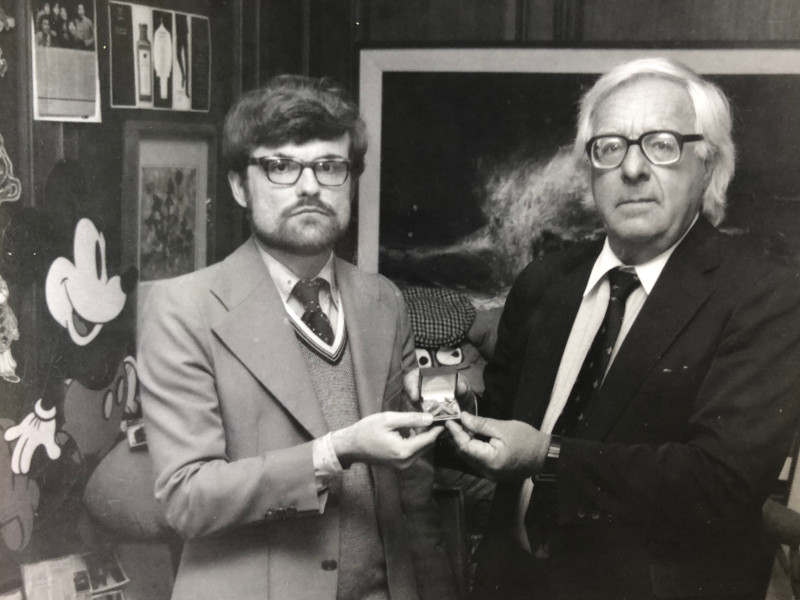Fahrenheit 451 (HBO Films)
Reviewed by J. Neil Schulman
[email protected]
Special to L. Neil Smith’s The Libertarian Enterprise
IMDb credits:
Director Ramin Bahrani
Writers Ramin Bahrani (adaptation) | Ray Bradbury (novel) | Amir Naderi (screenplay by)
Cast
Michael B. Jordan—Guy Montag
Michael Shannon—Captain Beatty
Sofia Boutella—Clarisse McClellan
Lynne Griffin– Old Woman / Grapes of Wrath
Keir Dullea—Historian
The HBO production of Fahrenheit 451 first broadcast May 19, 2018 is an exercise in irony.
In a career studded with triumphs of literature, stage, and screen, Fahrenheit 451 is Ray Bradbury’s most famous work, even above The Martian Chronicles and his screenplay adaptation for John Huston ’s movie version of Moby Dick.
Fahrenheit 451, a novel first published in the year I was born, 1953, was entered into the Libertarian Futurist Society’s Prometheus Hall of Fame in 1984, the same year I won the Prometheus Award for my novel, The Rainbow Cadenza.
Since Bradbury was in Paris when the award was given out at the LACon II worldcon in Anaheim, the award for Fahrenheit 451 was accepted by Bradbury's close friend, Brad Linaweaver, who later presented the award to Bradbury at his office in the Bradbury Building.

Brad Linaweaver presenting the Prometheus Hall of Fame Award to Ray
Bradbury for FAHRENHEIT 451.
Foto taken by Victor Koman in 1984 at the office from which Ray hosted
every episode of his television series, THE RAY BRADBURY THEATER.
The 1953 novel was made into a movie by François Truffaut, released in 1966.
The 1966 movie was as faithful to the original Bradbury novel as Truffaut was able to make it given production constraints, not the least of which was Truffaut—who spoke little English—making it his only English language movie.
Both Ray Bradbury’s 1953 novel and Truffaut’s 1966 movie are set in a near-future dystopia where books are legally forbidden and firemen don’t put out fires; they burn books.
That’s background. That’s not the irony of this new HBO production.
The irony of this new HBO production of a dystopia where books are burned is that there is no evidence I can tell that the filmmakers ever read Ray Bradbury’s book. All the original Bradbury ideas that they used can be found in the 1966 Truffaut movie. There isn’t a single idea from Bradbury’s novel that wasn’t used by Truffaut in the 1966 movie.
This new production even leaves out a critical Bradbury character Truffaut included in his movie: Fireman Montag’s brainwashed wife. I guess having a negative portrayal of a wife just doesn’t support #MeToo.
This is not to say that the new production is without merit. As science fiction on its own terms on the theme originated by Ray Bradbury it’s not terrible. It’s just Bradbury dumbed down for illiterates, which is itself an iteration of Bradbury’s warning.
Ray Bradbury’s novel is a challenge not only for readers to value the written word, but for an author like me.
I must ask myself if I am writing a book worth dying for.
I must ask my readers—past, present, and future —if I have written any book meritorious enough that it’s worth their lives to preserve.
A TV movie that preserves none of the ideas exclusively found in Ray Bradbury’s novel fails this test.
It would be worthier to have made a completely original movie on the theme of book burning, anti-intellectualism, and historical amnesia—which were indeed Bradbury themes in Fahrenheit 451 —than to narrow ideas in an adaptation not from the original novel but from a prior film adaptation.
Instead the filmmakers insert into a movie supposedly based on a Ray Bradbury novel plot points from other science fiction works —a nosy central computer from Ira Levin’s This Perfect Day (so they can read a book!) and citizens stripped of their identity like the Touchables in my own novel, The Rainbow Cadenza.
There’s one other thing. This new production isn ’t timeless and universal the way Bradbury’s original 1953 novel was and even Truffaut’s 1966 movie was.
It’s set in America, uses only American symbols, and does not deal at all with problems of anti-intellectualism, historical amnesia, political correctness, and leftist-based oppression ubiquitous throughout the rest of the world.
This new production operates on the conceit that the problem of anti-intellectualism, historical amnesia, and an oppressive State begins during a Republican administration on September 11, 2001, and can be cured if only Donald Trump is not the president. I will admit that this is not explicitly in the text of this new production but it stinks to high heaven as the subtext of why it was made at this time.
It certainly wasn’t made at the current time to honor Ray Bradbury, who was a man of the libertarian right. It leaves Ray Bradbury in the forgotten past he predicted would happen when people stopped reading books.
Brad Linaweaver points out that Fahrenheit 451 is a short book, not a doorstop like the 1066-page Atlas Shrugged. There ’s no excuse for the filmmakers not to have read it and base their movie on it. This is a movie about burning books.
The first book the filmmakers burned was the Ray Bradbury classic novel they should have based their movie on.
There’s even less excuse that the filmmakers did not pay Ray Bradbury the tribute François Truffaut did in his 1966 adaptation, by having one of the burning books shown onscreen be by Ray Bradbury.
J Neil Schulman

J. Neil Schulman is a novelist, screenwriter, journalist, radio
personality, filmmaker, composer, and actor. His dozen books include
the novels Alongside Night and The Rainbow Cadenza,
both of which won the Libertarian Futurist Society’s Prometheus
Award for best libertarian novel, and the anthology Nasty, Brutish,
And Short Stories.
Read
more about him.
Was that worth reading?
Then why not:
![]()
AFFILIATE/ADVERTISEMENT
This site may receive compensation if a product is purchased
through one of our partner or affiliate referral links. You
already know that, of course, but this is part of the FTC Disclosure
Policy
found here. (Warning: this is a 2,359,896-byte 53-page PDF file!)
